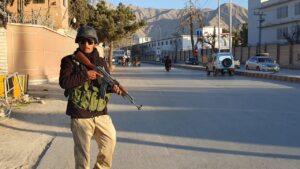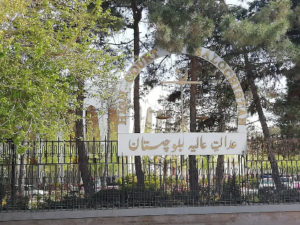Editorial:
Balochistan, Pakistan’s most underdeveloped yet resource-rich province, is facing a devastating higher education crisis. While billions of rupees are allocated annually for infrastructure—such as roads, dams, and drainage projects—the province’s public sector universities remain critically underfunded.
Faculty and staff at three major institutions—University of Balochistan, BUITEMS (Balochistan University of Information Technology, Engineering and Management Sciences), and Sardar Bahadur Khan Women’s University—have taken to the streets in protest over non-payment of salaries, delayed allowances, and budget cuts in the education sector.
These institutions educate over 30,000 students, both male and female, from across Balochistan. Despite their vital role in producing future engineers, researchers, and leaders, their teachers remain unpaid. Instead of addressing this crisis, the Higher Education Department Balochistan recently announced austerity measures, including drastic cuts to faculty allowances—from junior staff to senior professors.
In a time of soaring inflation, this is unacceptable. Investing in human capital and quality education must be the province’s top priority. Without well-paid, motivated educators, academic performance, research output, and global university rankings will continue to decline.
Chief Minister Mir Sarfraz Bugti has shown a commitment to merit-based reforms and corruption-free recruitment in education. However, this vision must now extend to securing sustainable funding for higher education institutions. The current crisis demands urgent financial relief for university staff and improved budget allocations.
Public universities in Pakistan are central to national development, especially in regions like Balochistan where access to affordable higher education is already limited. Empowering students through quality learning environments, research funding, and skilled faculty will uplift not only the province but the entire nation.






